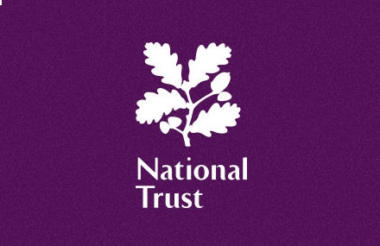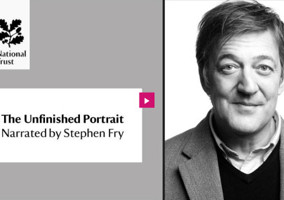The National Trust has been criticised by both pro- and anti-hunting lobbies for changes to its rules on trail hunting.
The National Trust has introduced changes to how it licenses trail hunts, which are hunts that follow an artificially laid scent, supposed to mimic an actual fox.
The Trust will now ban animal-based scents, and says that this will “reduce the risk of foxes or other wild animals being accidentally chased”. But it will still allow trail hunts which use synthetic scents.
Opponents of hunting had introduced a measure to be voted on at the charity's AGM, next month, which would have banned trail hunting altogether. The Trust's changes stop short of that outright ban.
As a result of the changes, the charity has been criticised for going too far by the Daily Telegraph, and not far enough by The Observer.
The Trust said in a statement: “We introduced a number of changes last week in how we license trail ‘hunts’ to further safeguard conservation and access on our land.
“Our clear, robust, and transparent set of conditions – which follow a six month review – are designed to allow participants to enjoy this activity in compatibility with our conservation aims.
“We have been carefully listening to both sides of a highly polarised and passionate debate for years. During our review, we carefully weighed up those arguments, but our first priority is always to protect conservation and access on our land.
“Members will have the opportunity to discuss trail hunting and vote on the matter at the charity’s annual general meeting in October.”
Changes to trail hunting
Hunting wild animals was made illegal in England and Wales by the Hunting Act of 2004, however the law does allow trail hunting to continue. This is effectively a replication of a traditional hunt, but without a fox being chased. The Trust currently does license trail hunts in some areas and at certain times of the year, “where it is compatible with our aims of public access and conservation”.
One of the changes involves the trust publishing information on times and dates of hunts on its website, whereas previously people would have had to contact the hunts directly for this information, but often contacted the Trust when it could not find these details.
It said: “We believe people have every right to expect us to provide this information so they can, for example, avoid certain areas of countryside when a hunt is taking place or conversely to watch a hunt in their local area. Relying however on small, local teams to respond to a high volume of enquiries related to hunts is a labour-intensive and exhaustive process. It’s also an ineffective way of sharing this information in the digital age, lacking consistency and clarity.
“As a charity with nearly 5 million members, we believe we should be transparent and to share information of public interest in an easily accessible way. That’s why we are planning to provide details of where and when hunts will take on the ‘outdoor licensing page’ of our website.”
The Trust said: “We believe it is right to minimise as far as possible the risk of foxes or any wild animal being accidentally chased during a trail hunt; moving to artificial scents is part of achieving that aim. We are not being prescriptive about the artificial scent used provided it is not animal based in any way.”
‘Painting a target’
The Telegraph has criticised the charity for “painting a target” on huntsmen by posting on its website the times and locations of the hunts.
However, the Observer said it had “seen details of a response by the trust’s 12-member board which will be sent to members this week. It urges them to oppose the motion on the basis of new measures to tighten the licensing regime and a pledge to examine the track record of each applicant hunt”.
A statement from National Dis-Trust, a grouping of animal rights activists and National Trust members, says that the policy change is “nothing more than an attempt to further mask widespread wildlife crime”.
It said: “It demonstrates that the trust management have no intention of stopping criminal bloodsports on their land, and reinforces the need for members to step in and defend wildlife in a way that the trust cannot.”
AGM vote
In October, the charity’s AGM will take place which will include a vote on the motion to prevent hunts from legally accessing large amounts of land across England and Wales, which was put forward by the League Against Cruel Sports.
The League Against Cruel Sports said that it could be a “landmark moment”.
Philippa King, acting chief executive for the League Against Cruel Sports, said: “The National Trust is a treasured institution which does wonderful work, but it has allowed itself to be embarrassed by the hunting fraternity. The reasons hunts give to justify being on National Trust land have been shown time and time again to be mere excuses covering up illegal hunting.
“We believe National Trust members do not want animals being chased and killed on the land they love, so will give the National Trust a strong message at the AGM – if you truly are an organisation that cares about the UK’s flora and fauna, then hunting does not belong on your land.”
However, the Countryside Alliance is urging National Trust members to use their vote at the Trust’s upcoming AGM to ensure that trail-hunting can continue to be used on National Trust land.
Polly Portwin, the Countryside Alliance’s Head of Hunting, said: “We cannot underestimate the importance of members using their vote to support legal trail-hunting on National Trust land.
“There are currently more than 60 hunts that apply for a licence to enable them access to National Trust land, but if this motion carries at the AGM then a number of these hunts may no longer be viable due to a lack of country.”
The National Trust said that the changes it is introducing include:
- Banning the use of animal-based scents as a trail for hounds or beagles to follow. This will reduce the risk of foxes or other wild animals being accidentally chased.
- Prohibit the presence of terriermen, who have no practical purpose on a trail ‘hunt’, and the use of their vehicles.
- More active management of hunts and how they operate including: mandatory reporting requirements after each meet; the provision of specified maps/areas; and requiring at the time of application details of all proposed hunt days.
- Probing the track record of each applicant and establishing a consistent charging regime across Trust land.
- Greater transparency for its members and the public. It will post on its website the agreed days and locations, in advance, for its members and supporters to view. This will include a primary point of contact for each hunt.
- It is exploring how it can work more closely with the Police’s independent National Wildlife Crime Unit, which is the proper authority for handling alleged breaches in wildlife legislation.
Related articles











